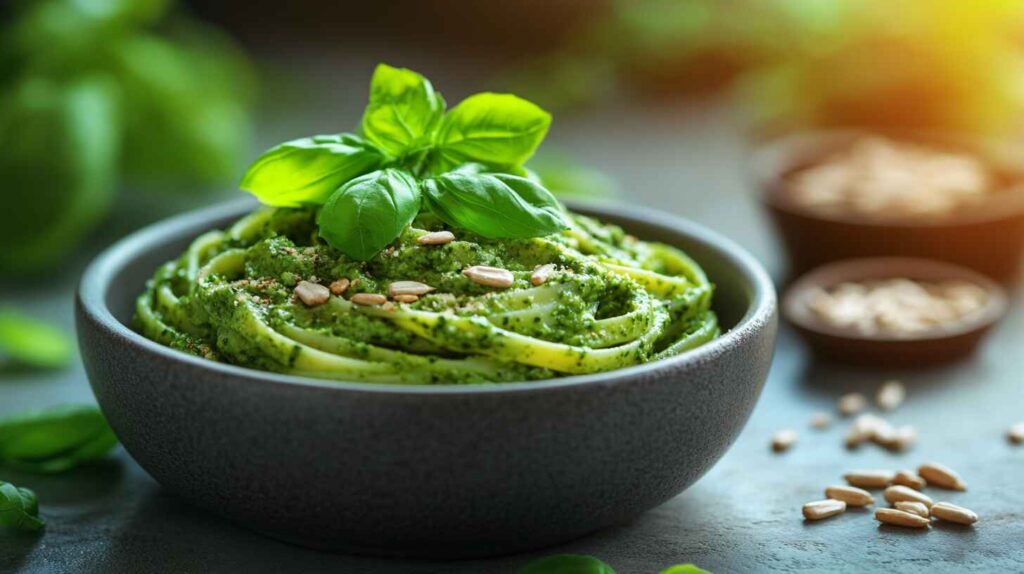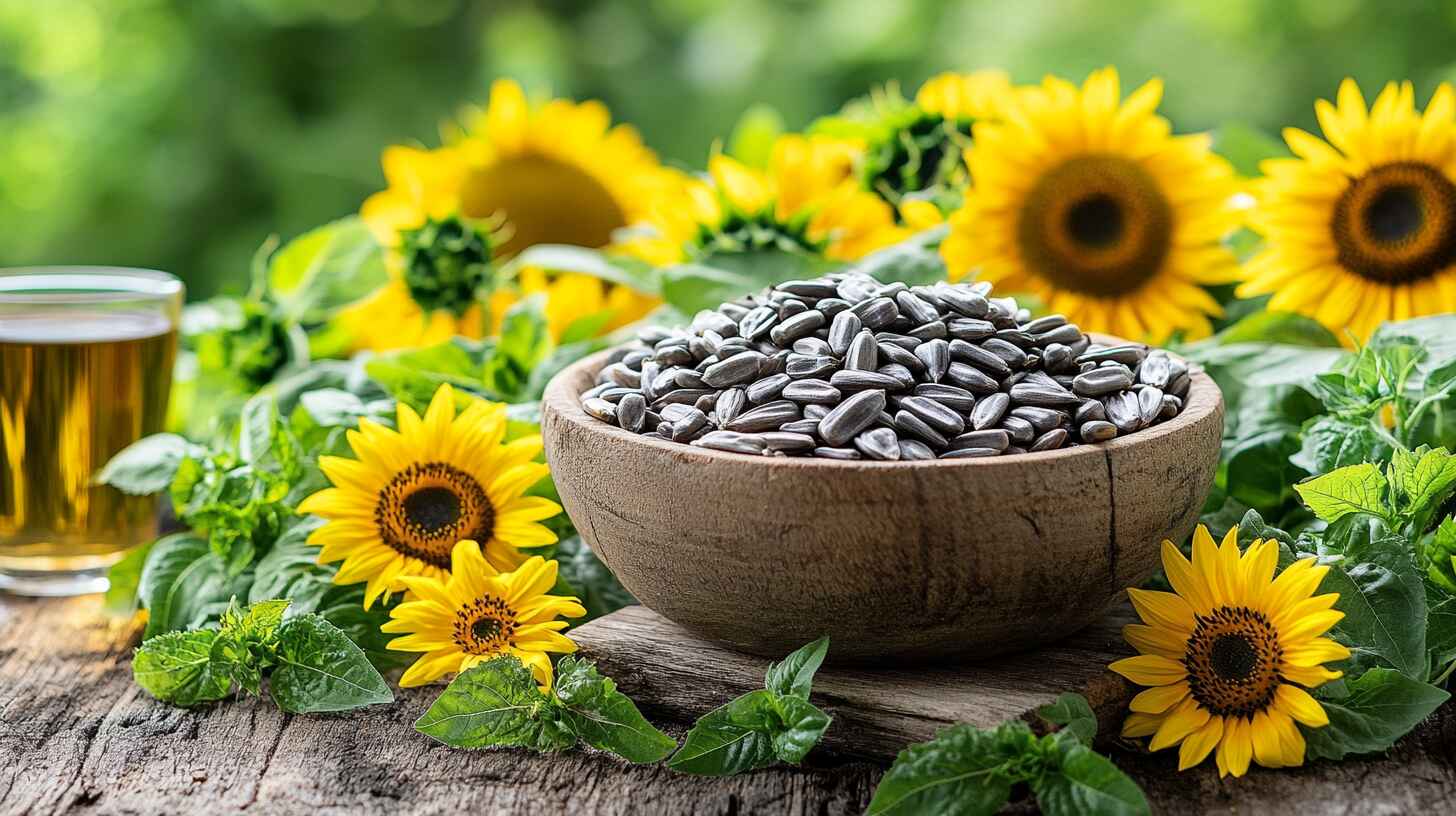Ever wondered what makes sunflower seeds such a favorite snack and ingredient? 🌻 Whether you’re munching on them during a movie or tossing them into your salad, these tiny seeds pack a big punch. Let’s dive into the world of sunflower seeds, exploring their benefits, uses, and even a few common challenges you might face. By the end, you’ll see why these seeds deserve a place in your pantry—and your heart. 💛
What Are Sunflower Seeds?
Origins and History of Sunflower Seeds
Did you know that 🌻 seeds come from the vibrant sunflower plant (Helianthus annuus)? These golden beauties have been cultivated for thousands of years, with their roots tracing back to North America. Over time, sunflowers traveled to Europe and beyond, becoming a global agricultural superstar. 🌍
“Sunflower seeds are a testament to nature’s genius—small, versatile, and packed with goodness.”
Varieties of Sunflower Seeds
Not all sunflower seeds are created equal! 🌱 There are two main types:
- Oilseed Sunflower Seeds: These are smaller, black seeds primarily used to extract sunflower oil.
- Non-Oilseed (Confectionery) Sunflower Seeds: These are the larger, striped seeds you snack on or add to recipes.
Both varieties bring unique benefits, but we’ll focus mostly on the ones we eat. Ready to dig in? Let’s talk nutrition!
Nutritional Profile of Sunflower Seeds
Macronutrients: Protein, Carbs, and Fats
Think sunflower seeds are just empty calories? Think again! 🌟 These little seeds are nutritional powerhouses. Here’s what you get in a typical 1-ounce serving (about 28 grams):
| Nutrient | Amount |
|---|---|
| Calories | 160 |
| Protein | 5.5 grams |
| Carbohydrates | 6 grams |
| Fats | 14 grams |
| Fiber | 3 grams |
With healthy fats, plant-based protein, and a bit of fiber, 🌻 seeds are a balanced snack that keeps you full and energized. 🌞
Vitamins and Minerals in Sunflower Seeds
Sunflower seeds are like tiny multivitamins. They’re loaded with:
- Vitamin E: A powerful antioxidant that’s great for your skin and immune system.
- Magnesium: Helps with muscle function, bone health, and even your mood.
- Selenium: Supports thyroid function and fights oxidative stress.
Who knew something so small could do so much? 🤯
Caloric Content and Portion Size
Now, let’s be real—sunflower seeds can be addictive! But before you go through an entire bag, remember they’re calorie-dense. Stick to about 1 ounce (a small handful) for a snack. That way, you’ll get all the benefits without overloading on calories.
Health Benefits of Sunflower Seeds
Heart Health: Supporting a Healthy Cardiovascular System
Sunflower seeds are packed with unsaturated fats, the “good” fats that help reduce bad cholesterol levels. Plus, the high magnesium content helps regulate blood pressure. Eating these seeds is like giving your heart a warm hug. ❤️
Skin and Hair Benefits of Sunflower Seeds
Ever heard the saying, “Beauty starts from within”? Vitamin E in 🌻 seeds boosts skin elasticity, fights signs of aging, and even promotes shiny, healthy hair. It’s like a spa treatment in seed form. 🌟
Role in Managing Weight and Metabolism
Trying to manage your weight? The combo of protein, fiber, and healthy fats in 🌻 seeds keeps you feeling full longer. They’re a great option for curbing those mid-afternoon cravings without resorting to junk food. 🥗
Boosting Immunity and Combating Inflammation
The antioxidants and nutrients in sunflower seeds strengthen your immune system and reduce inflammation. Think of them as tiny warriors fighting off illness and keeping you healthy. 🛡️
Culinary Uses of Sunflower Seeds
Sunflower Seeds in Snacks and Salads
Sunflower seeds are incredibly versatile. Sprinkle them on salads for a crunchy texture or snack on roasted seeds straight out of the bag. Want a pro tip? Pair them with dried fruits for a DIY trail mix that’s both sweet and savory. 🍇🥜
Recipes Featuring Sunflower Seeds: Sweet and Savory
Sunflower seeds aren’t just for snacks—they’re a fantastic ingredient in recipes. Ever tried sunflower seed pesto? Blend seeds, basil, garlic, olive oil, and Parmesan for a unique twist on the classic sauce. Or how about sunflower seed granola bars? They’re perfect for an on-the-go energy boost. 🥖
Sunflower Seed Butter: A Nut-Free Alternative
For those with nut allergies, sunflower seed butter is a game-changer. It’s creamy, rich, and works just like peanut butter in sandwiches, smoothies, or baked goods. Bonus? It’s super easy to make at home with roasted seeds and a food processor. 🥜➡️🌻
Stay tuned for the second part, where we’ll explore 🌻 seeds’ role in sustainable agriculture, tackle common problems, and uncover even more amazing facts!
Sunflower Seeds in Sustainable Agriculture
Role in Crop Rotation and Soil Health
Sunflowers aren’t just pretty to look at—they’re also fantastic for the environment. 🌍 Farmers often use sunflowers in crop rotation to improve soil health. These deep-rooted plants pull nutrients from the soil’s lower layers, making it richer for the next crop. It’s like giving the earth a natural boost of vitamins!
Sunflower Seeds as Bird Feed and Wildlife Support
Did you know sunflowers are a favorite snack for more than just humans? 🐦 Birds love sunflower seeds, especially black oil seeds, which are easy to eat and highly nutritious. Feeding wildlife with sunflower seeds can help birds through the winter and attract beautiful creatures to your garden.
Environmental Benefits of Sunflower Farming
Reducing Carbon Footprint
Did you know that sunflowers are like little green superheroes? 🌿 These plants are excellent at absorbing carbon dioxide from the atmosphere, which helps in reducing greenhouse gases. Their fast-growing nature and high biomass make them a natural tool for carbon sequestration. Imagine contributing to a cleaner planet just by planting or supporting sunflower farming!
Sunflowers in Phytoremediation
Here’s a fun fact: sunflowers can clean up the environment! 🌍 They’re often used in phytoremediation, a process where plants absorb toxins from the soil. Sunflowers have been used to remove heavy metals and other pollutants from contaminated land, including areas affected by industrial waste and even nuclear disasters, like Chernobyl.
Low Water and Pesticide Requirements
Compared to many other crops, sunflowers are pretty low-maintenance. 🌞 They don’t need a ton of water to thrive, making them a smart choice in areas prone to drought. Plus, their natural resilience means fewer pesticides are required, which is a win for both farmers and the ecosystem.
Supporting Biodiversity
Sunflower fields are more than just Instagram-worthy—they’re buzzing with life. 🐝 Bees, butterflies, and other pollinators flock to sunflowers, which provide nectar and shelter. By supporting sunflower farming, you’re also helping protect these essential creatures that keep our planet’s ecosystems balanced.
“Sunflowers aren’t just pretty faces; they’re hardworking allies in the fight for a greener future.”

🍽️ Delicious Ways to Enjoy Sunflower Seeds
- As a Snack:
Enjoy them raw, roasted, or lightly salted. Pair with dried fruits for a quick trail mix. - In Baking:
Add sunflower seeds to muffins, bread, or cookies for added crunch and nutrients. - Salad Topping:
Sprinkle roasted sunflower seeds over your salads for extra texture and flavor. - Nut-Free Butter:
Blend sunflower seeds into a creamy, nut-free butter that’s perfect for spreading on toast or adding to smoothies. - As a Crust:
Use crushed sunflower seeds to coat chicken, fish, or tofu before baking or frying.
🌻 Try This Recipe: Sunflower Seed Pesto Pasta 🌱
🌿 Sunflower Seed Pesto Pasta 🌿
A nut-free twist on classic pesto, made with sunflower seeds for a creamy and flavorful sauce.
🕒 Time: 25 minutes
🍽️ Servings: 4
🌱 Vegetarian, Nut-Free, Dairy-Free (optional)
Ingredients:
– 🌻 1 cup sunflower seeds (toasted)
– 🧄 2 garlic cloves
– 🍋 Juice of 1 lemon
– 🌿 2 cups fresh basil leaves
– 🧂 1/3 cup olive oil
– 🧀 1/4 cup grated Parmesan cheese (or nutritional yeast for a vegan option)
– 🍝 12 oz pasta of your choice
– 🧂 Salt and pepper to taste
Instructions:
1. Toast the sunflower seeds in a dry skillet over medium heat until golden and fragrant, about 5 minutes. Set aside to cool.
2. In a food processor, combine toasted sunflower seeds, garlic, lemon juice, basil leaves, and olive oil. Blend until smooth.
3. Stir in Parmesan cheese or nutritional yeast and season with salt and pepper to taste. Adjust the consistency with water if needed.
4. Cook the pasta according to package instructions. Drain and toss with the pesto sauce.
5. Serve warm, garnished with additional sunflower seeds and fresh basil if desired.
Nutrition Info (Per Serving):
– Calories: 430
– Protein: 12g
– Carbs: 46g
– Fat: 21g
– Fiber: 5g
Sunflower seeds are a pantry staple worth celebrating. Whether you’re snacking, cooking, or exploring creative recipes, these little seeds are your go-to for health and flavor.
Transform your pasta night with vibrant, flavorful green spaghetti—a delicious twist packed with fresh herbs, creamy sauces, and a burst of nutrients!” 🌱🍝
Common Problems Associated with Sunflower Seeds
Allergies to Sunflower Seeds: Symptoms and Management
While sunflower seeds are a healthy treat for most people, some may be allergic. Symptoms can range from mild (itchy throat, sneezing) to severe (hives, difficulty breathing). If you’re unsure, it’s best to try a small amount first and monitor your body’s reaction. And if you’re allergic, always check labels, as sunflower seeds can sneak into many foods. 🚨
Overconsumption: Side Effects and Risks
As much as we love 🌻 seeds, too much of a good thing can backfire. Eating large quantities can lead to weight gain due to their high calorie content. Plus, some packaged 🌻 seeds are loaded with salt, which isn’t great for your blood pressure. Moderation is key! ⚖️
Storage Issues: How to Keep Sunflower Seeds Fresh
Have you ever opened a bag of 🌻 seeds and found they taste…off? That’s because they can go rancid if not stored properly. Keep them in an airtight container in a cool, dry place—or even in the fridge—for the freshest flavor. 🥶
Solutions and Tips for Common Sunflower Seed Issues
Choosing High-Quality Sunflower Seeds
Not all 🌻 seeds are created equal! Look for seeds that are firm, plump, and free from cracks. Organic and unsalted options are often the healthiest choice. Bonus points if you can get freshly roasted seeds from a local store. 🛍️
Proper Storage Techniques for Longevity
Want to keep your seeds fresh for months? Here’s a tip: store them in an airtight container away from light and heat. For extra-long shelf life, freeze them! This prevents oxidation, keeping your seeds tasty and nutritious. ❄️
Safe Consumption for Allergy-Prone Individuals
If you or someone in your family has a mild sensitivity, try sunflower seed butter as an alternative. It’s usually well-tolerated and just as delicious. Always consult with a doctor before introducing sunflower seeds into your diet if you’re unsure. 🩺
The Global Market for Sunflower Seeds
Major Producers and Exporters
Sunflower seeds are big business! The largest producers are countries like Ukraine, Russia, and Argentina, thanks to their vast sunflower fields. These countries not only supply seeds for snacks but also sunflower oil, a staple in many kitchens worldwide. 🌻🌎
Trends in Sunflower Seed Consumption
As people look for healthier snacks, sunflower seeds are becoming more popular. They’re gluten-free, vegan, and packed with nutrients, making them a go-to choice for many diets. Plus, creative uses like sunflower seed milk and sunflower protein are on the rise. 🥤
Fun Facts and Trivia About Sunflower Seeds
Cultural Significance of Sunflower Seeds
In many cultures, sunflower seeds are more than just food. *In Russia, they’re a popular street snack, while in China, they’re often enjoyed during festivals. In the U.S., they’re a staple at baseball games. Isn’t it amazing how one seed can unite people worldwide? 🌐
Surprising Uses Beyond Food
🌻 seeds aren’t just for eating. They’re used in making biodiesel, cosmetics, and even as natural exfoliants in skincare products. Talk about versatility! 🌿
Last Bite
So, why should you consider adding sunflower seeds to your diet? They’re nutritious, versatile, and good for the planet. Whether you’re snacking, cooking, or supporting sustainable farming, sunflower seeds are the ultimate all-rounder. 🌟
“From their humble beginnings to their global impact, sunflower seeds truly shine as nature’s little powerhouse.”
Next time you see a bag of sunflower seeds, grab it! Your taste buds—and your health—will thank you. 🌻

